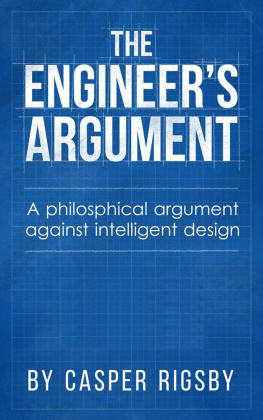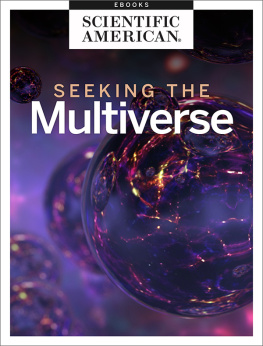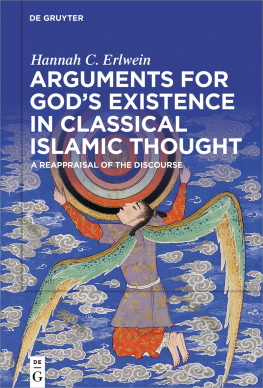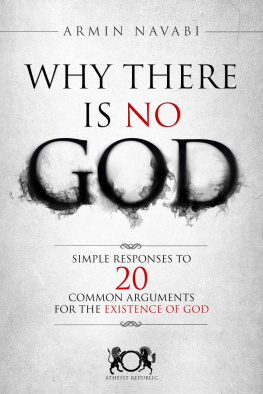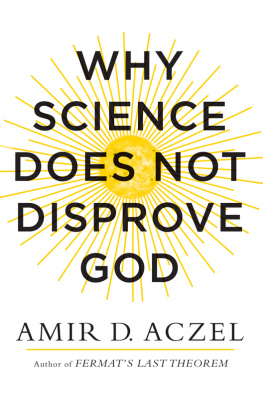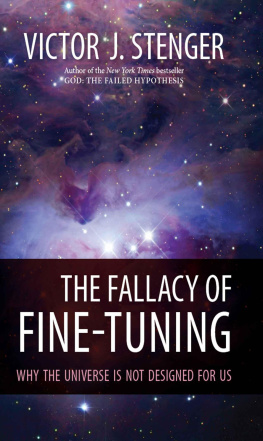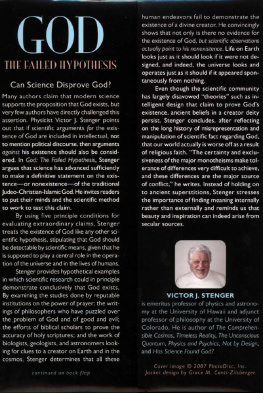God Hates Science
By
Ray Fleming
This publication was published, written, edited, and illustrated by Ray Fleming with additional editing by Ward Lowe.
Copyright 2017 by Ray Fleming
All rights reserved. No part of this publication may be reproduced, or transmitted, in any form, or by any means, electronic, mechanical, photocopying, recording, or otherwise, without the prior written permission of Ray Fleming.
Published in the United States of America
ISBN-10: 197960794X
ISBN-13: 978-1979607940
Acknowledgement
This book is dedicated to the memory of Dr. Madalyn Murray OHair, her son Jon, and granddaughter-daughter Robin, and their contributions toward their goal of a religion-free society. They encouraged me to take a stand for science and reason.
.
CONTENTS
Chapter 1 | In the Beginning | |
Chapter 2 | The Fallacy of Beauty | |
Chapter 3 | God, Your Farts Stink | |
Chapter 4 | The Fallacy of Purpose | |
Chapter 5 | The Fallacy of Dualism | |
Chapter 6 | The Afterlife Lie | |
Chapter 7 | Ethics and Morality | |
Chapter 8 | Coincidences | |
Chapter 9 | Cause and Effect, and Free Will | |
Chapter 10 | Science and Reason | |
Chapter 11 | God Science | |
Chapter 12 | The Physical Constants | |
Chapter 13 | The Big Bang | |
Chapter 14 | Bad Logic | |
Chapter 15 | Biological Complexity | |
Chapter 16 | The God Checklist | |
Chapter 17 | Spinozas Universe | |
Chapter 18 | Proofs of Non-Existence | |
Chapter 19 | God Believers Hate Science and Reason | |
Appendix to Chapter 12 | |
Index of Arguments | |
Chapter 1: In the Beginning
In the beginning God created the heaven and the earth. And the earth was without form, and void; and darkness was upon the face of the deep. And the Spirit of God moved upon the face of the waters. And God said, Let there be light, and there was light.
The Book of Genesis
Before any beginning, there was the universe. And after an unmeasurable number of years, the universe produced humans, who then created gods in their own image. Humans came up with numerous wonderful tales about their fictitious gods. These tales were passed down orally for centuries, before being put into writing. Many of these religious texts survive until today. They are frequently attributed to the god or gods they are written about, or human authors are said to have been divinely inspired to write the words dictated by their particular god.
These tales vary greatly, as different cultures had different gods, or sets of gods, and different traditions. But in almost every god story, there is a creation myth. While some of these myths have details in common, the one thing they certainly have in common is that they are wrong. They are not only wrong because a hypothetical god is not necessary to explain the existence of the universe, but the details are not consistent with scientific evidence. Even the idea that a creation is needed is wrong.
The most widely read religious creation myth is from the Book of Genesis, which is the first book of the Hebrew and Christian bibles. Genesis represents the beliefs of the single largest collective organized religious group, the Christians, and since the god of Islam is also the god of Abraham, it represents beliefs of the second largest religious group as well. Including Judaism, Abrahamic religions represent the god beliefs of over 4 billion people out of approximately 7.5 billion people on Earth.
Additional people have been taught Abrahamic myths and dogma, while some have read about them out of curiosity. So, well over 4 billion people are familiar with at least some Abrahamic religious dogma and in particular the story from Genesis.
A small housekeeping detail: The word god in the title and throughout this book is used in the hypothetical sense. It would be awkward to read hypothetical god every time the god concept comes up, so instead of hypothetical god, the text of this book frequently reads god.
The Book of Genesis is a great place to test the Abrahamic gods scientific knowledge or, more precisely, the scientific knowledge of its followers. What we find from this small sample of religious text is that it is not consistent with scientific evidence. In many instances, it does not even stand up to basic logic tests. While this is admittedly a small sample size, one can readily analyze other texts of these and other religions and see that the non-scientific and illogical nature of religious texts is a general problem with all of them.
Genesis 1:1a. In the beginning
The first two words are innocuous, but in writing the third word, the first important word in the Bible, god has already made its first big mistake. It assumed there is a beginning. Note that, while the Abrahamic god is normally referred to in the masculine, throughout this book god will be referred to as it, since a hypothetical solitary non-physical god must be an asexual being.
A belief in a beginning is not scientifically valid as it violates the principle of conservation of energy. The energy that exists today must have always existed. That includes the energy of the quantum field that exists everywhere in space. And, in the zero-point energy, as Einstein called it, the energy in a single cubic centimeter of space is greater than all the masses of all the visible stars and galaxies.
I know some of you are thinking, But, but, but, the Big Bang. That issue will be discussed in Chapter 13.
Genesis 1:1b. In the beginning God
Now we are four words into Genesis and god has multiplied its scientific and logical errors many times over. Here is a list of logical mistakes god made thus far, and this list is by no means complete.
- God says there was a beginning when god is also claiming that it already existed, so this was obviously not the beginning. If there was a beginning, it would have to occur when god or something else came into existence.
- Following the Genesis scenario, which presumes both a beginning and that god came first, the beginning would be when god was created.
- In order to meet both requirements that there was a beginning and god came first, god could not have existed for infinity.
- The idea that god had a beginning, begs the question of who or what created god.
- Space is required to have existed in the past, since it exists now, and the energy of all the space in the universe must be conserved.
- There is nothing scientific or logical that enables a god to be created before the energy of space.


